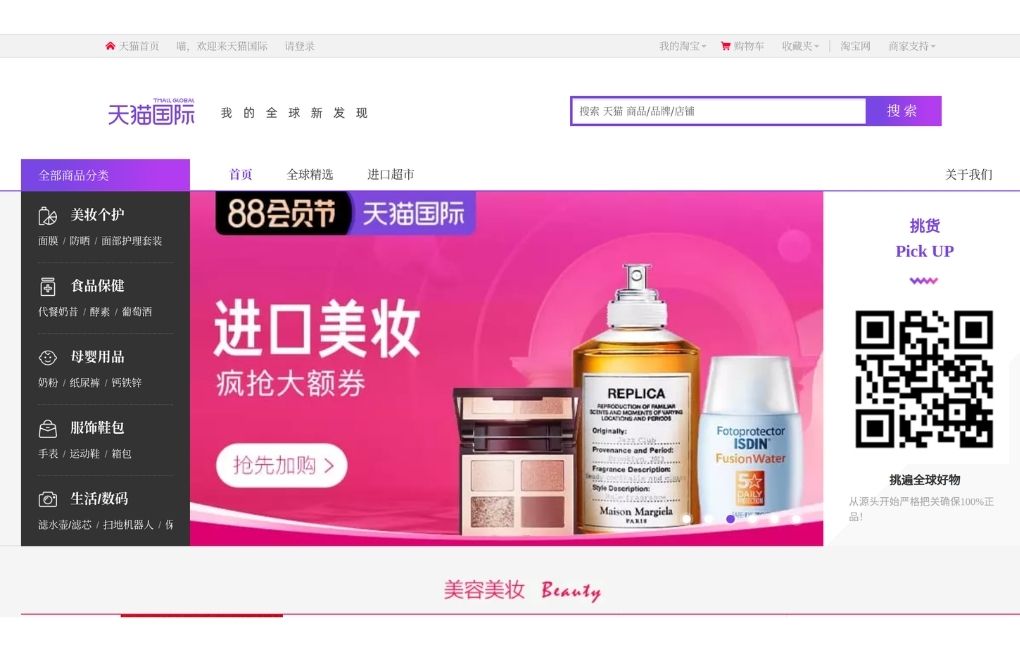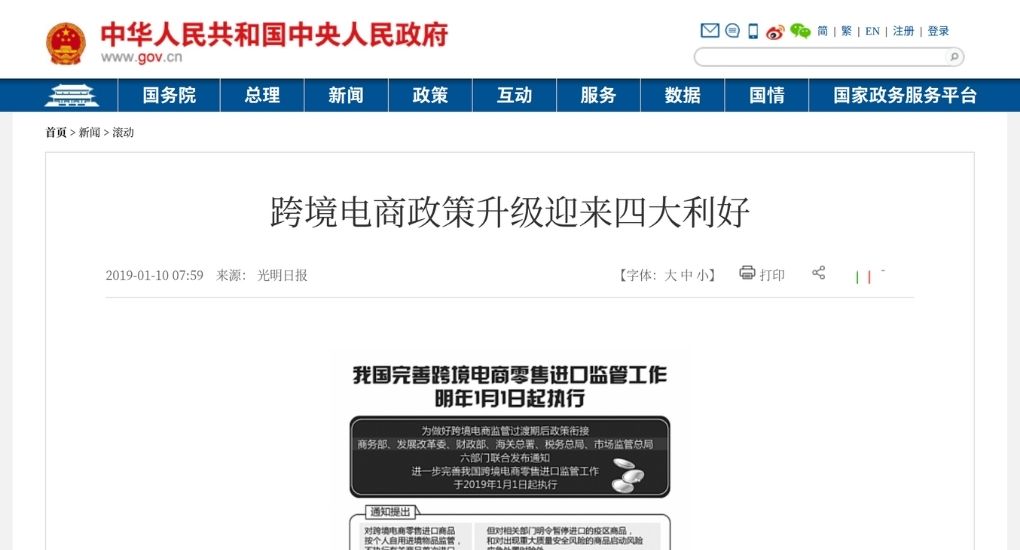Cross-border E-commerce in China: 2020 Trends

Chinese cross-border market overview
As the scale of e-commerce continues to expand, China’s e-commerce has entered a period of relatively stable development from a period of ultra-high-speed growth in 2016. However, China’s cross-border e-commerce continues to maintain growth. According to statistics from the General Administration of Customs, the total value of China’s cross-border e-commerce in 2019 reached 186.21 billion yuan, a year-on-year increase of 38.3%, of which exports were 94.4 billion yuan and imports were 91.81 billion yuan.
China Cross-Border: a decentralized market
The cross-border e-commerce market is surprisingly fragmented. The traditional e-commerce market is dominated by Alibaba (about 60-70% of market share) while cross-border e-commerce is relatively fragmented. No enterprise has a market share of more than 25%.
Cost-Effective Agency
KPI and Results focused. We are the most visible Marketing Agency for China. Not because of huge spending but because of our SMART Strategies. Let us help you with: E-Commerce, Search Engine Optimization, Advertising, Weibo, WeChat, WeChat Store & PR.
Surprisingly, while Lynx and Jingdong are important players, they definitely do not dominate cross-border games.
Branding to succeed in china cross-border eCommerce
With the increasing affluence of the Chinese and the increase in national consumption levels, the focus of cross-border e-commerce products is no longer the past international price difference, but product quality and brand.
In the era of Industry 4.0, new technologies such as the Internet of Things and artificial intelligence have made the manufacturing industry transform into a demand-side determinant model, and the consumption upgrade of Chinese consumers makes the development of cross-border e-commerce shift to refinement and verticalization to meet the individual needs of consumers.
In addition, consumers who pay attention to quality are paying more and more attention to brands. Leading brands in some categories have established brand influence among consumers through various marketing strategies. The focus of competition in the cross-border e-commerce market has changed from the past. The market full of counterfeit and unbranded products is transformed into the one with the strong brand competition. Brands with good e-reputation and awareness will have an important position in cross-border e-commerce competition.
How Chinese buy on cross-borders ecommerce platforms?
Among cross-border buyers, the frequency of purchases is surprisingly high: 65% of users purchase via cross-border at least once per month. 11.6% do it more than once a week.
66.2% of orders are between 300 and 1,000 yuan. However, it is important to note that these orders are usually made on large platforms that focus on promoting cheaper products.
Our personal experience with hundreds of cross-border e-shops is that customers are very willing to spend more than 1,000 yuan on cross-border purchases, especially to make transport costs worthwhile. We found orders between $1,000 and $5,000 through cross-border WeChat stores are very common.
Governmental practices to facilitate China’s cross-border e-commerce Growth
China’s cross-border electricity supplier market continued to maintain its flourishing growth. Unlike the local e-commerce market, users are accustomed to shopping on platforms other than Tmall, sometimes purchased directly from overseas merchants This trend opens up a unique opportunity for the brand to finally get out of Lynx and JD.com and start building direct relationships with its customers.
According to a decision of the executive meeting of the State Council chaired by Premier Li Keqiang, China will establish more pilot areas for cross-border e-commerce trade facilitation to enhance China’s international competitiveness.
The meeting decided to extend the success of the cross-border pilot area for e-commerce to various cities in the country with good infrastructure and great potential for trade and e-commerce development. Originally planned to be launched in Hangzhou State Council in 2015, it has been expanded to 12 cities in Shanghai, Tianjin, and Chongqing since early 2016.
Some good practices are moving all over the country, such as an online integrated service platform for customs clearance, logistics, tax rebates, payment, fund-raising, and risk control services, as well as offline industrial parks that provide full-industry chain services.
“We need to promote the healthy development of cross-border electricity suppliers, speed up the development of new engines and make the foreign trade industry more adaptable to the new situation and better grasp the new frontier.”
“The prospects for cross-border electricity suppliers are very bright.”
More than 400 third-party platforms and more than 20,000 cross-border e-commerce trading companies have been established in the Chinese pilot areas.
The government will further streamline management reform, strengthen compliance supervision, improve services, improve the cross-border e-commerce policy matrix, improve efficiency and reduce operating costs.
Developing the entire value chain of e-commerce will be a supportive undertaking, including the establishment of overseas warehousing facilities covering major countries and markets as well as logistics networks.
Automated retail with self-checking
Since Amazon launched the concept of automated convenience store Amazon Go, Chinese e-commerce and retail giants have laid out new retail store innovation projects: Walmart launched self-service grocery stands; EasyHome opened automated convenience store EAT BOX, etc. Unmanned retail stores are favored by various e-commerce platforms due to the advantages of lower operating costs and lower cost of traffic.
In November 2017, the largest outdoor smart unmanned convenience store “Wow!” created by SF’s cross-border retail e-commerce company was launched, becoming the first “cross-border e-commerce + unmanned retail” store in China. In the future, cross-border e-commerce platforms will gradually deploy unmanned retail stores, starting from high consumption density scenarios, gradually covering all consumption scenarios, and extending to all categories.
Chinese cross-border platforms are an ideal tool for foreign brands to sell directly to Chinese consumers. However, it is not always easy to sell to the Chinese, branding is very important for your strategies. As has been explained earlier in the article, Chinese customers are searching for products of good quality and of a good brand.

If you want to sell your products or services on Chinese cross-border e-commerce, the first step you need to do is to make your brand well-known by the Chinese. GMA can help with this. We are a professional and experts in Chinese digital marketing. Having more than 8 years of experience with many foreign companies, we are one of the leading marketing agencies in China.











Do you know if in 2019 Cross-border e‑commerce grows rapidly in China?
nobody has the data yet. but it should growth yes.